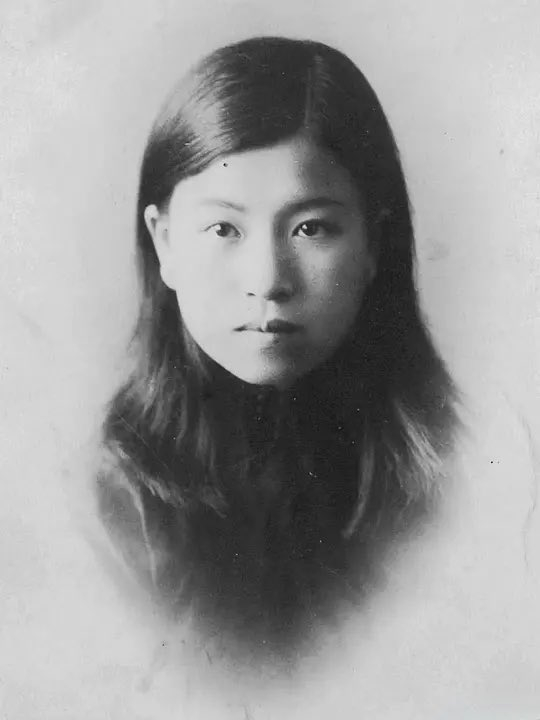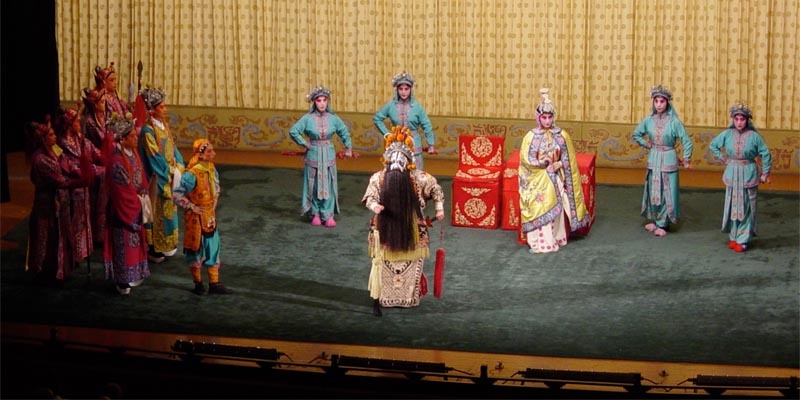|
Wu Han (historian)
Wu Han ( zh, s=吴晗, p=Wú Hán}; August 11, 1909 – October 11, 1969) was a Chinese historian and politician. Wu was one of the most important historians in the development of modern historical scholarship in China during the 1930s and 1940s. In the 1940s he was a leading member of the China Democratic League, a non-aligned political organization during most of the Chinese civil war which eventually threw its weight behind the Chinese Communist Party. After 1949, he served as the Vice Mayor of Beijing. In November 1965, at the beginning of the Cultural Revolution, he came under attack for a play he wrote about an upright Ming dynasty official called ''Hai Rui Dismissed from Office'', which was widely understood as an anti-Mao allegory. His political downfall also resulted in the purge of Beijing Mayor Peng Zhen. Wu died in prison in 1969. Biography Early life and education Wu Han was born in Yiwu, Zhejiang in 1909. With support from the Wu clan organization and with th ... [...More Info...] [...Related Items...] OR: [Wikipedia] [Google] [Baidu] |
Wu (surname)
''Wú'' is the pinyin transliteration of the Chinese surname 吳 (Simplified Chinese 吴), which is a common surname (family name) in Mainland China "Mainland China", also referred to as "the Chinese mainland", is a Geopolitics, geopolitical term defined as the territory under direct administration of the People's Republic of China (PRC) in the aftermath of the Chinese Civil War. In addit .... Wú (吳) is the sixth name listed in the Song dynasty classic '' Hundred Family Surnames''. In 2019 Wu was the ninth most common surname in Mainland China. A 2013 study found that it was the eighth most common surname, shared by 26,800,000 people or 2.000% of the population, with the province having the most being Guangdong. The Cantonese and Hakka transliteration of 吳 is Ng, a syllable made entirely of a nasal consonant while the Min Nan transliteration of 吳 is Ngo, Ngoh, Ngov, Goh, Go, Gouw, depending on the regional variations in Min Nan pronunciation. Shanghaine ... [...More Info...] [...Related Items...] OR: [Wikipedia] [Google] [Baidu] |
Kunming
Kunming is the capital and largest city of the province of Yunnan in China. The political, economic, communications and cultural centre of the province, Kunming is also the seat of the provincial government. During World War II, Kunming was a Chinese military center and the location of the headquarters for the US Army Forces China-Burma-India. Kunming Wujiaba International Airport, Wujiaba Airport served as the home of the Flying Tigers, First American Volunteer Group (AVG) of the Republic of China Air Force, nicknamed the Flying Tigers. Kunming was also a transport terminus for the Burma Road. Kunming is at an altitude of Above mean sea level, above sea level and a latitude just north of the Tropic of Cancer, and is situated in the middle of the Yunnan–Guizhou Plateau. Kunming is the fourth most populous city in Western China, after Chongqing, Chengdu, and Xi'an, and the third most populous city in Southwestern China after Chongqing and Chengdu. As of the 2020 census, Kunmin ... [...More Info...] [...Related Items...] OR: [Wikipedia] [Google] [Baidu] |
Jiang Qing
Jiang Qing (March 191414 May 1991), also known as Madame Mao, was a Chinese communist revolutionary, actress, and political figure. She was the fourth wife of Mao Zedong, the Chairman of the Chinese Communist Party, Chairman of the Communist Party and Paramount leader of China. Jiang was best known for playing a major role in the Cultural Revolution as the leader of the radical Gang of Four. Born into a declining family with an Domestic violence, abusive father and a mother who worked as a Domestic worker, domestic servant and sometimes a Prostitution, prostitute, Jiang Qing became a renowned Actor, actress in Shanghai, and later the wife of Mao Zedong in Yan'an, in the 1930s. In the 1940s, she worked as Mao Zedong's Personal assistant, personal secretary, and during the 1950s, she headed the Film Section of the Publicity Department of the Chinese Communist Party, Publicity Department of the Chinese Communist Party (CCP). Appointed deputy director of the Central Cultural Re ... [...More Info...] [...Related Items...] OR: [Wikipedia] [Google] [Baidu] |
Beijing Opera
Peking opera, or Beijing opera (), is the most dominant form of Chinese opera, which combines instrumental music, vocal performance, mime, martial arts, dance and acrobatics. It arose in Beijing in the mid-Qing dynasty (1644–1912) and became fully developed and recognized by the mid-19th century. The form was extremely popular in the Qing court and has come to be regarded as one of the cultural treasures of China. Major performance troupes are based in Beijing, Tianjin and Shanghai. The art form is also preserved in Taiwan, where it is also known as (). It has also spread to other regions such as the United States and Japan. Peking opera features four main role types, '' sheng'' (gentlemen), '' dan'' (women), '' jing'' (rough men), and '' chou'' (clowns). Performing troupes often have several of each variety, as well as numerous secondary and tertiary performers. With their elaborate and colorful costumes, performers are the only focal points on Peking opera characteristicall ... [...More Info...] [...Related Items...] OR: [Wikipedia] [Google] [Baidu] |
People's Daily
The ''People's Daily'' ( zh, s=人民日报, p=Rénmín Rìbào) is the official newspaper of the Central Committee of the Chinese Communist Party (CCP). It provides direct information on the policies and viewpoints of the CCP in multiple languages. It is the largest newspaper in the China, People's Republic of China (PRC). History The paper was established on 15 June 1948 and was published in Pingshan County, Hebei. It was formed from the merger of the ''Jin-Cha-Ji Daily'' and the newspapers of the Jin-Ji-Lu-Yu base area. On 15 March 1949, its office was moved to Beijing, and the original People's Daily Beijing edition was renamed ''Beijing Liberation Daily''. The newspaper ceased publication on 31 July 1949, with a total of 406 issues published. Since the newspaper was the official newspaper of the North China Central Bureau of the CCP, it was historically known as the ''North China People's Daily'' or the ''People's Daily North China Edition''. At the same time, in order ... [...More Info...] [...Related Items...] OR: [Wikipedia] [Google] [Baidu] |
Mao Zedong
Mao Zedong pronounced ; traditionally Romanization of Chinese, romanised as Mao Tse-tung. (26December 18939September 1976) was a Chinese politician, revolutionary, and political theorist who founded the People's Republic of China (PRC) in 1949 and led the country from Proclamation of the People's Republic of China, its establishment until Death and state funeral of Mao Zedong, his death in 1976. Mao served as Chairman of the Chinese Communist Party (CCP) from 1943 until his death, and as the party's ''de facto'' leader from 1935. His theories, which he advocated as a Chinese adaptation of Marxism–Leninism, are known as Maoism. Born to a peasant family in Shaoshan, Hunan, Mao studied in Changsha and was influenced by the 1911 Revolution and ideas of Chinese nationalism and anti-imperialism. He was introduced to Marxism while working as a librarian at Peking University, and later participated in the May Fourth Movement of 1919. In 1921, Mao became a founding member of the ... [...More Info...] [...Related Items...] OR: [Wikipedia] [Google] [Baidu] |
Marxism
Marxism is a political philosophy and method of socioeconomic analysis. It uses a dialectical and materialist interpretation of historical development, better known as historical materialism, to analyse class relations, social conflict, and social transformation. Marxism originates from the works of 19th-century German philosophers Karl Marx and Friedrich Engels. Marxism has developed over time into various branches and schools of thought, and as a result, there is no single, definitive " Marxist theory". Marxism has had a profound effect in shaping the modern world, with various left-wing and far-left political movements taking inspiration from it in varying local contexts. In addition to the various schools of thought, which emphasize or modify elements of classical Marxism, several Marxian concepts have been incorporated into an array of social theories. This has led to widely varying conclusions. Alongside Marx's critique of political economy, the defining cha ... [...More Info...] [...Related Items...] OR: [Wikipedia] [Google] [Baidu] |
Yang Jisheng (journalist)
Yang Jisheng (born November 1940)"A hunger for the truth: A new book, banned on the mainland, is becoming the definitive account of the Great Famine." , chinaelections.org, 7 July 2008"Chinese author of book on famine braves risks to inform new generations" by Verna Yu, '''', 18 December 2008 is a Chinese journalist and author. His work i ... [...More Info...] [...Related Items...] OR: [Wikipedia] [Google] [Baidu] |
Great Leap Forward
The Great Leap Forward was an industrialization campaign within China from 1958 to 1962, led by the Chinese Communist Party (CCP). Party Chairman Mao Zedong launched the campaign to transform the country from an agrarian society into an industrialized society through the formation of people's communes. The Great Leap Forward is estimated to have led to between 15 and 55 million deaths in mainland China during the 1959–1961 Great Chinese Famine it caused, making it the List of famines, largest or second-largest famine in human history. The Great Leap Forward stemmed from multiple factors, including "the purge of intellectuals, the surge of less-educated radicals, the need to find new ways to generate domestic capital, rising enthusiasm about the potential results mass mobilization might produce, and reaction against the sociopolitical results of the Soviet Union, Soviet [Union]'s development strategy." Mao ambitiously sought an increase in rural grain production and ... [...More Info...] [...Related Items...] OR: [Wikipedia] [Google] [Baidu] |
Deng Tuo
Deng Tuo (; c. 1911 – 17 May 1966), also known by the pen name Ma Nancun (), was a Chinese poet, intellectual and journalist. He became a cadre of the Chinese Communist Party and served as editor-in-chief of the ''People's Daily'' from 1948 to 1958. He committed suicide in 1966 following scathing criticism in the People's Daily, as the Cultural Revolution The Cultural Revolution, formally known as the Great Proletarian Cultural Revolution, was a Social movement, sociopolitical movement in the China, People's Republic of China (PRC). It was launched by Mao Zedong in 1966 and lasted until his de ... was beginning. Bibliography * Timothy Cheek, Propaganda and Culture in Mao's China: Deng Tuo and the Intelligentsia', Oxford University Press, 1998 * Roderick MacFarquhar: ''The origins of the cultural revolution'', Oxford University Press References 1910s births 1966 suicides 1966 deaths 20th-century Chinese poets Suicides during the Cultural Revolution Ch ... [...More Info...] [...Related Items...] OR: [Wikipedia] [Google] [Baidu] |
Yanhuang Chunqiu
''Yanhuang Chunqiu'' ( zh, s=炎黄春秋, p=Yánhuáng Chūnqiū), sometimes translated as ''China Through the Ages'', is a monthly journal in the People's Republic of China which was historically commonly identified as liberal and reformist. It was started in 1991, with the support of Xiao Ke, a liberal general of China's People's Liberation Army. Du Daozheng served as the founding director of the publisher. The journal was previously regarded as one of the most influential liberal journals in China, issuing some 200,000 copies per month. It paused its operations in 2016, however, due to the crackdown from Xi Jinping's administration–even though Xi Zhongxun, the father of Xi Jinping, had publicly supported the publisher. Following the pause, a new management team with pro-Xi editors was introduced, and continued to make publications. History Founding In 1990, Xiao Ke, a liberal General of the People's Liberation Army and standing member of the Central Advisory Commi ... [...More Info...] [...Related Items...] OR: [Wikipedia] [Google] [Baidu] |






